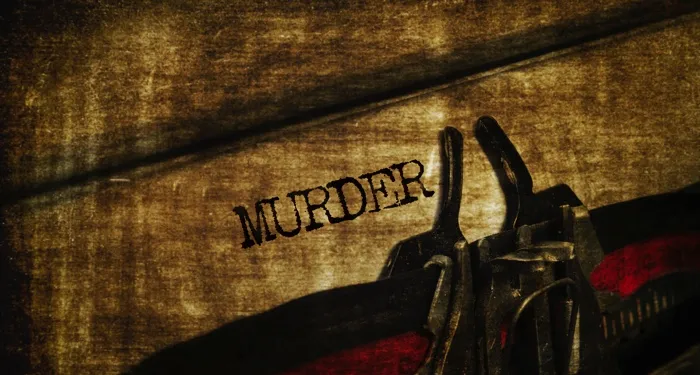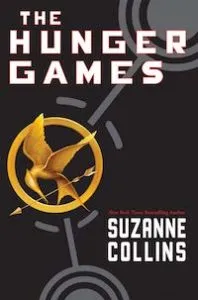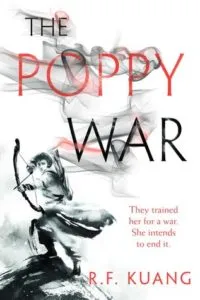
How to Get Away With Murdering a Character
SPOILER WARNING: Big time spoilers ahead for Hunger Games, Poppy Wars, Scandal, Unwind, and Veronica Mars.
In January, I finally watched Veronica Mars, start to finish. Years behind the rest of the world, its fatal conclusion — the death of Logan Echolls — genuinely knocked the wind out of me.
And yes, it’s always hard to lose a beloved character unexpectedly, but this one felt different.
This time, I wasn’t riding the ups and downs of the story — readers and fans do understand that stories have to come with challenges and pain for their heroes, or there’s no story to be had. This was much more than that. I wasn’t grieving a character, I was rejecting the creative choices made by the show creator Rob Thomas.
This was character murder.
I’m not alone in this outrage. In fact, the show’s dedicated following — which resurrected the show multiple times, from television to fan-funded Kickstarter movie, novels, and back to Hulu — abruptly shut down an eagerly awaited reboot after just one season because of this fatal flaw (pardon the pun).
This one move was just too far.
But why? Plenty of stories, on screen and on page, have gotten away with killing off characters. Even beloved ones. Even shocking ones.
Where’s the line between a death that resonates with emotional tension and one that shuts the story down?
The Rules of Character Murder
When it comes to murdering beloved characters, authors can get away with it, but there are rules.
Rule 1: Demonstrate Command Over the Story
Creator Rob Thomas has stated he felt Logan’s death was necessary because Veronica was at her best as the underdog. Apparently, being married undermined this in a way that was impossible to recover from.
But the truth is, Thomas seemed to be grasping at straws for development across the entire supporting cast, and this dated back to the 2014 movie and pervaded the novels between then and the reboot season four. Thomas seemed to be struggling to find ways to start the show over from scratch. And fans noticed. By the time Logan’s death struck, the trust in the show’s creator was gone.
When the creator is already showing signs of poor management, fans are hardly likely to trust you when you break their hearts, then ask for another season.
So what makes for a good character killing? Lucky for us, plenty of other storytellers have nailed it.
Rule 2: Deliver on the Story’s Promise
Regardless of your medium, a story’s premise is a promise to fans. Whether you’re writing a young adult dystopian, a gothic horror, or political thriller, there are cues readers rely on from the first beats to understand what they’re getting into.
In The Hunger Games, for example, the death of Prim at the end was brutal, but it was one among many cruel deaths in the story arc. After all, the entire premise of the story was that the Capitol routinely forced children to murder each other for its citizens’ entertainment. As the games spread into a full-on civil war, the story grew more grim, and so did the costs of the fight. The loss of Prim at the end served as a reminder of the many terrible costs of war, and of freedom.
Scandal also comes to mind. This show was all about that Shonda gold — the high drama and shocking twists. So of course we were coming around to some murder eventually, and in fact, there were many over the show’s tenure. While some of these deaths may have shocked fans, it’s part of the ride we signed up for, so it wasn’t a deal-breaker.
If an author’s going to play with life and death in their story, the stakes have to be clear to readers. Sure, Veronica Mars had some deaths throughout its history, including the murder of Lily on which it got its start. But the core cast had always come through. It was a contract the fandom had come to trust.
Rule #3: Deaths Must Contribute to the Plot and Theme
Part of what made Logan’s death so difficult to accept was its randomness. Tagged on at the very end of the season, all the plot threads had been tied up. Logan’s death didn’t contribute to the arc. It just…happened.
When a death is done right, it can deliver a real hit of emotion, while also building out the themes. In another brutal example of the consequences of war and also hubris from The Poppy War, Rin’s mentor Master Jiang is killed in battle defending Rin and others, due to Rin’s fatal error in judgment against his guidance. It’s a dark warning of later stakes in the war to come, delivered in a memorable way for both Rin and readers.
Or, take Unwind. Throughout this entire adventure, Risa, Connor, and the others are on the run to escape the threat of the unwind — a process through which unwanted teens are, essentially, scrapped for parts. The government assures its people that an unwind is by no means a death, but rather, just a different new way to live through others. Real poetic, except that no one is quite clear on how an unwind works. The question looms throughout the story’s dark corners, until finally, the reader enters the unwind room with Roland.
And look, no one feels bad for Roland, because he’s been a bully and a monster from the start. But his death is still terrible to behold as he is slowly taken apart from foot to head with chilling calculation.
Perhaps not a ghastly character murder in terms of character loyalty, but certainly chilling to behold — and a revealing moment within the story for what the government considers “humane,” upping the stakes for the rest of the series in a major way.
A Character’s Death Can Make or Break a Story
Authors can kill their characters. They can even kill beloved characters. But authors, if you’re going to get away with the murder, you’ll have to play by the rules. In fiction, a character’s death has to count.
This, ultimately, is what went wrong with Logan’s death in Veronica Mars. It wasn’t just that the fandom had come to love the character so much. It wasn’t just that Thomas broke fans’ hearts — he broke their trust. As Thomas found out the hard way, when you break trust with a story’s fans, they might just retaliate by bringing the series to an untimely end, too.















